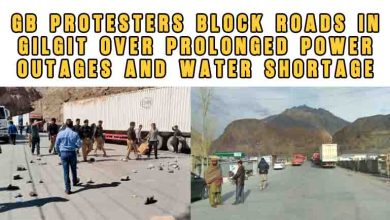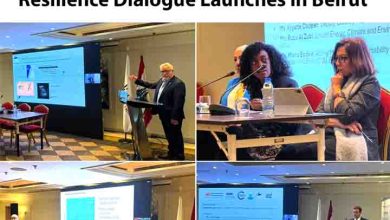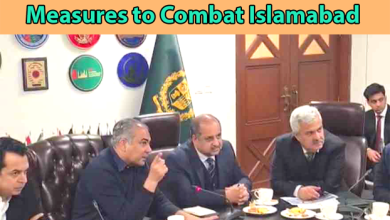Speakers stress global response to tackle climate-triggered disasters
Islamabad : A virtual session titled ‘Dialogue on Climate Change Impacts on the Vulnerable Communities in Pakistan was held to discuss the various challenges climate change poses to Pakistan. This webinar was organized by Club de Madrid (CdM), in partnership with Aurat Foundation.
The virtual session was chaired by former president of Slovenia Danilo Turk, President of the Club de Madrid and speakers includes Maria Elena, Secretary General CdM, Naz Baloch, Parliamentary Secretary for Ministry of Climate Change, Shaista P. Malik, Member National Assembly, Prof. Dr. Kinzo Hiroki, National Graduate Institute for Policy Studies, Tokyo, Mangla Sharma MPA Sindh, Naeem Mirza ED Aurat Foundation and Ali Imran, Senior Expert Club de Madrid.
The chair of the session President Danilo Turk said we need to ensure that no one is left behind all over the world. He stressed that climate change should be a priority at all times and that integrated global, national, regional, and local approaches should be adopted to respond to this challenge. Pakistan has always put forth its case very eloquently in UN meetings and has a number of ongoing projects regarding climate change.
He mentioned that the recent floods in Pakistan should be a brutal wake-up call for all to move forward and do something. He concluded by saying that the climate change response should be holistic and human-centered.
Naz Baloch said that Pakistan has adopted a national policy for climate change in 2021. She said that the region is witnessing major climate change events such as droughts, floods, and rains and there needs to be a better realization for the rest of the world around this issue.
She added that the Secretary-General UN in a recent COP meeting said that he feels their pain and suffering on his visit to Pakistan. She ended by saying that what comes in Pakistan does not stay in Pakistan and that today its us tomorrow it could be some other country so we need to prioritize this issue and other countries must make strong efforts to reduce carbon emissions. Maria Elena Aguero, Secretary General Club de Madrid said that social inclusion should be at the heart of the climate change response. The voices of the most margalinsed should be heard and included in the policy interventions. She said that the climate-triggered disasters have further widened the already existing inequalities and injustices. No one should be left behind when it comes to state protections.
Prof. Dr. Kenzo gave a presentation on climate change’s impacts on water-related disasters in Asia and Pakistan and how to address the challenges. He said that globally 5.7 billion people have been affected by disasters from 1994-2013. He further added that the per capita disaster is 6 times higher for poor people than the rich people. He said that the poor suffer disproportionately in disasters and that 90% of people affected in the last decade due to disasters reside in Asia.
In his presentation, Dr. Kenzo said that better risk prevention should be integrated with efficient long-term planning. In the end, he said that there is a Japanese early warning free application called integrated flood analysis situation (IFAS) which we can use when preparing for flood situations. Shaista P. Malik MNA thanked Danilo for his compassionate comments on Pakistan’s flood situation at the beginning of the webinar.
In Pakistan, we have brought legislation on women’s issues on a range of different issues. She added that the government has several projects in the pipeline and is doing its work on the ground as well which is currently focusing on flood affectees. Makeshift schools have been put in place in flood-affected areas in Pakistan. And more than 2.6 million families have been given financial assistance by the government we can present to the affected people. She said that we will continue to work with Aurat Foundation to make more inclusive policies and lay the groundwork for our future generations of women in this country.
Mangla Sharma MPA said Pakistan has been facing climate change since the early 2000s.







